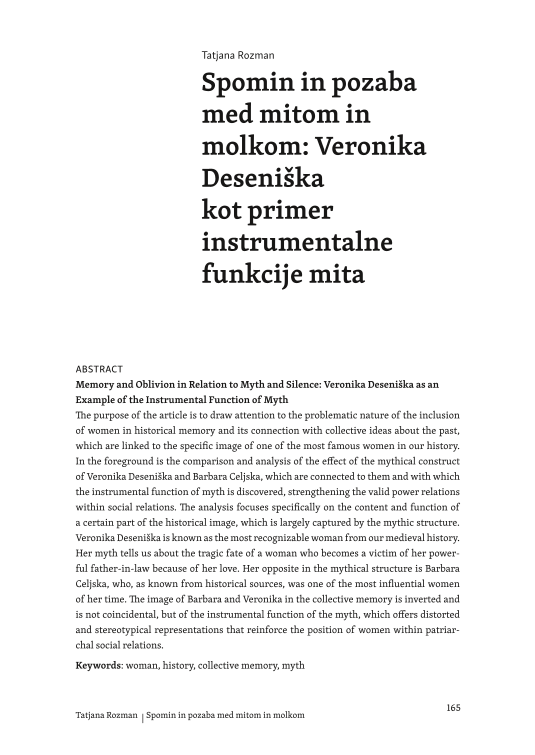The purpose of the article is to draw attention to the problematic nature of the inclusion of women in historical memory and its connection with collective ideas about the past, which are linked to the specific image of one of the most famous women in our history. In the foreground is the comparison and analysis of the effect of the mythical construct of Veronika Deseniška and Barbara Celjska, which are connected to them and with which the instrumental function of myth is discovered, strengthening the valid power relations within social relations. The analysis focuses specifically on the content and function of a certain part of the historical image, which is largely captured by the mythic structure. Veronika Deseniška is known as the most recognizable woman from our medieval history. Her myth tells us about the tragic fate of a woman who becomes a victim of her powerful father-in-law because of her love. Her opposite in the mythical structure is Barbara Celjska, who, as known from historical sources, was one of the most influential women of her time. The image of Barbara and Veronika in the collective memory is inverted and is not coincidental, but of the instrumental function of the myth, which offers distorted and stereotypical representations that reinforce the position of women within patriarchal social relations.




